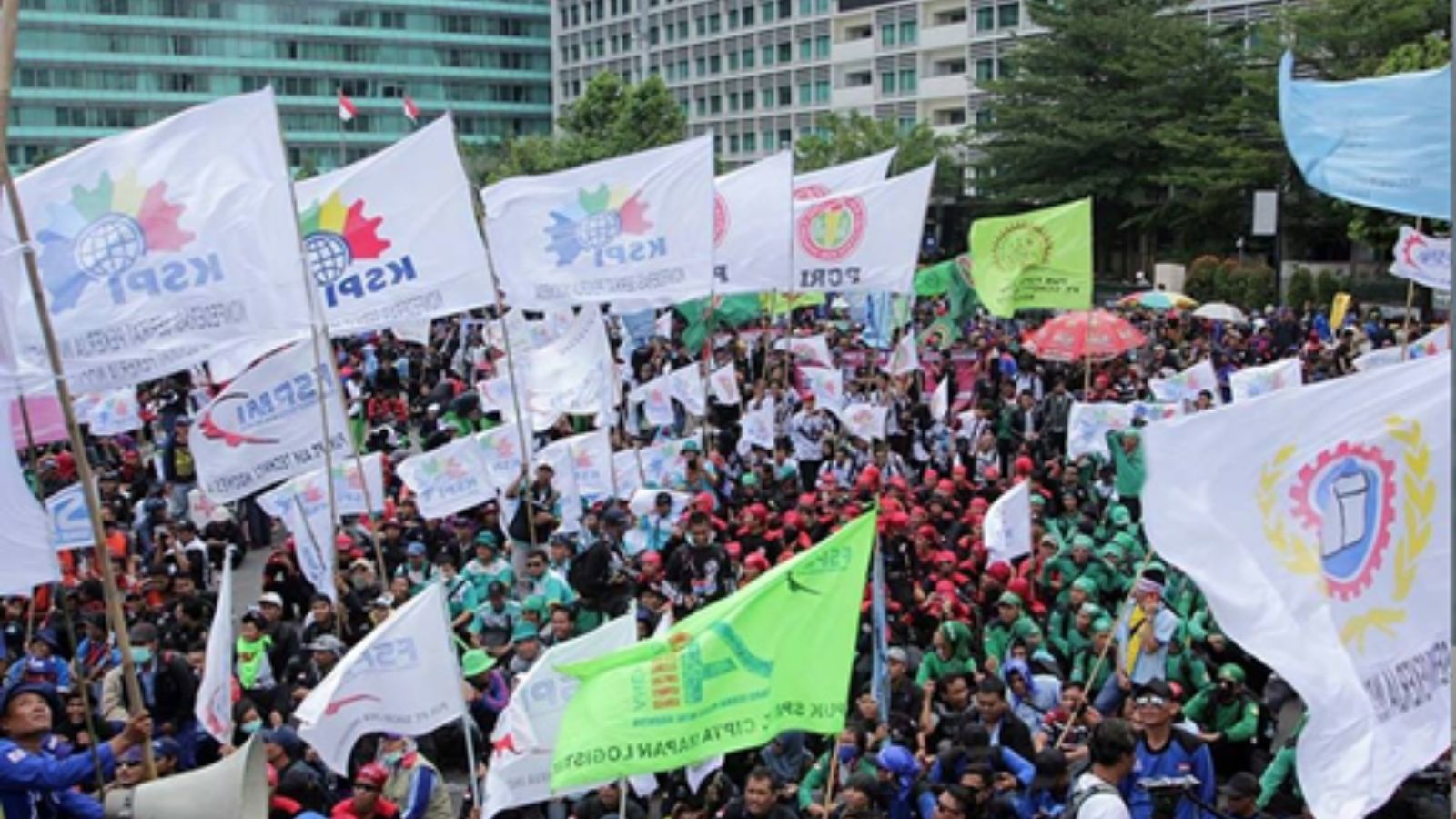Operational Context
Indonesia’s large, unionized workforce and dense industrial corridors (Greater Jakarta, West/East Java) mean wage disputes can rapidly scale into multi-city actions. Tactics typically include mass rallies, long marches, factory walkouts, and corridor blockades creating immediate knock-on effects for ports, airports, and urban mobility. Precedent shows negotiations can be protracted, with intermittent actions sustaining pressure.
Executive Summary
- Date of Event: 13 October 2025
- Location: Jakarta, West Java, East Java, Yogyakarta, Bali, Sumatra, Papua (Indonesia)
- Risk Category: Civil Disturbance
- Severity Level: 4/5
- Confidence Score: 85%
The Labor Party has warned of a national strike from Monday if wage are unmet. Expect widespread absenteeism, arterial road blockades, and factory stoppages across key industrial zones. Disruption is likely 3–7 days in the initial phase, with intermittent actions up to two weeks if talks stall. Risks include clashes at choke points, extended commute delays, logistics backlogs, and pressure on public order resources.
Current Updates
Strike calls have been circulated across labor federations with focus on Jakarta CBD/ministries, Bekasi–Karawang–Tangerang estates, and provincial capitals. Authorities are preparing traffic diversions and crowd-control deployments; businesses report pre-emptive shift changes and contingency rosters.
Known Hotspots and Sensitive Zones
- Government & Symbols: Istana Merdeka; DPR/MPR Complex (Senayan); provincial governorates.
- Industrial Corridors: EJIP, MM2100, Jababeka (Bekasi–Karawang); industrial estates in Gresik/Sidoarjo (East Java); Bandung corridor (West Java).
- Transport Hubs & Arteries: Soekarno–Hatta (CGK) access roads; Halim (HLP); toll roads (Jakarta–Cikampek, JORR), Sudirman–Thamrin–Gatot Subroto, key port approaches (Tanjung Priok).
Impact on Transportation and Services
- Roads: Rolling closures, slow-roll convoys, and mass gatherings causing gridlock on CBD corridors and estate approaches.
- Public Transport: Potential curtailments/delays for TransJakarta, KRL Commuterline, and provincial buses near rally zones.
- Operations: Factory stoppages and staff absenteeism; appointment no-shows; reduced retail footfall; slower banking/courier services in protest areas.
Recommendations
- Workforce & Mobility: Activate remote work where feasible; stagger shifts; provide secure shuttles and safe pickup points; map red/amber/green travel zones and communicate “no-go” windows.
- Supply Chain & Assets: Pre-position critical inventory; reroute via alternate gates/ports; use night or shoulder hours; harden site perimeters, lock down outdoor assets, and coordinate with police/estate security.
- Crisis Coordination & Comms: Stand up CMT with HR/Security/Legal/Operations; push twice-daily situation notes; publish client advisories on service SLAs and alternates; maintain hotline/WhatsApp/landline fallbacks.
- Legal & Compliance: Review labor-law obligations, strike protocols, and documentation; train supervisors on de-escalation and lawful engagement.
- People Safety: Issue crowd-avoidance guidance; buddy systems for essential travel; first-aid/trauma kits on sites; confirm emergency contacts.
Multi-Dimensional Impact
Disruption will be sharpest in business operations, mobility, and logistics, as factory walkouts and corridor blockades choke production and distribution across Java’s industrial spine, with spillovers to ports and airport access roads. People safety concerns rise around choke points where crowds and police units converge, increasing the chance of scuffles, arrests, and incidental property damage. Regulatory/legal exposure grows with possible enforcement of public-order measures and scrutiny of employer practices. Social cohesion may fray where wage pressures intersect with living-cost grievances, drawing student/NGO participation. Asset/infrastructure risks are moderate vandalism or minor facility damage is possible during tense dispersals while communications/IT impacts remain indirect (congestion-related disruptions rather than targeted attacks). Environmental effects are limited to waste accumulation and idling emissions. Overall, this is a high-severity, nationally distributed event with meaningful economic and reputational downsides if talks stall.
Situation Outlook
It is highly likely the strike proceeds in major hubs for 24–72 hours, with negotiations shaping de-escalation speed. A moderate scenario involves sustained daily actions and rolling blockades through the week; a low-likelihood severe path entails wider violence, curfews, and prolonged paralysis of ports/highways. Expect intermittent aftershocks—even post-deal as unions consolidate leverage.
Emergency and Monitoring Channels
- Emergency: 112
- Police: 110
- Fire: 113
- Ambulance: 118/119
Strategic Takeaway
Prepare for a full workweek of elevated disruption across Java’s industrial corridors and metropolitan cores. Prioritize flexible staffing, resilient routing, and assertive stakeholder communications. Keep negotiation-aware playbooks ready, with rapid pivot from protect-and-ride-out to restart-and-recover as soon as corridors reopen.
Stay ahead of operational risks with real-time alerts, scenario modeling, and expert advisories with Datasurfr Predict. Start your 14-day free trial of Datasurfr’s Risk Intelligence Platform today.


